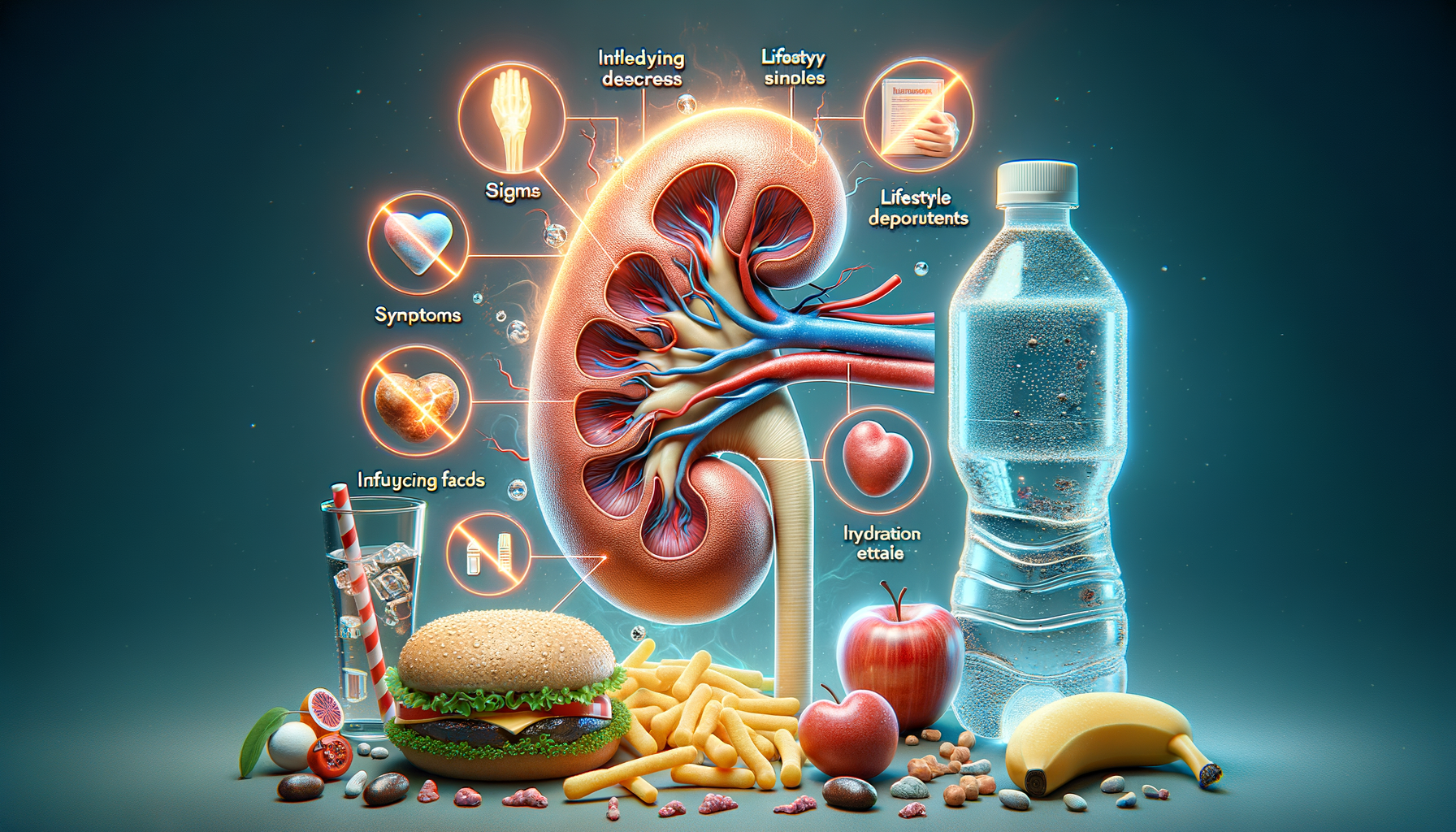How Kidney Stones Develop and Symptoms to Notice
Kidney stones are hard deposits made of minerals and salts that form inside your kidneys. They develop when your urine contains more crystal-forming substances—such as calcium, oxalate, and uric acid—than the fluid in your urine can dilute. At the same time, your urine may lack substances that prevent crystals from sticking together, creating an ideal environment for kidney stones to form.
Symptoms of kidney stones may not appear until the stones move around within the kidney or pass into the ureter—the tube connecting the kidney and bladder. At this point, you might experience severe pain in the side and back, below the ribs, pain that radiates to the lower abdomen and groin, pain that comes in waves and fluctuates in intensity, and pain during urination. Other symptoms include pink, red, or brown urine, cloudy or foul-smelling urine, nausea and vomiting, persistent need to urinate, urinating more often than usual, fever and chills if an infection is present, and urinating small amounts.
It’s crucial to seek medical attention if you experience any of these symptoms, as untreated kidney stones can lead to complications such as urinary tract infections or kidney damage. Early diagnosis and treatment can help prevent these issues.
Lifestyle Factors Influencing Kidney Stone Formation
Various lifestyle factors can influence the formation of kidney stones. Diet plays a significant role; consuming high amounts of protein, sodium, and sugar can increase the risk of some types of kidney stones. For instance, high sodium intake can increase the amount of calcium your kidneys must filter, thereby increasing the risk of calcium-based stones.
Obesity is another factor that can influence kidney stone formation. Excess body weight can cause changes in the acid levels in the urine, leading to stone formation. Additionally, certain medical conditions such as diabetes and gout can increase the risk of developing kidney stones.
Physical inactivity can also contribute to kidney stone formation. Regular exercise helps maintain a healthy weight and promotes the efficient functioning of the kidneys. Moreover, certain medications and supplements, such as calcium-based antacids and high doses of vitamin D, can increase the risk of kidney stones.
Understanding these lifestyle factors can help individuals make informed choices to reduce their risk of developing kidney stones. By adopting a balanced diet, maintaining a healthy weight, and staying active, individuals can support their kidney health and minimize the likelihood of stone formation.
How Hydration Supports Kidney Wellness
Hydration plays a vital role in maintaining kidney health and preventing the formation of kidney stones. Drinking adequate amounts of water helps dilute the substances in urine that lead to stones. When you are well-hydrated, your urine is less concentrated, reducing the likelihood of stone formation.
The general recommendation is to drink enough water to produce about 2 liters of urine a day, which may require consuming about 8-10 glasses of water daily. However, individual needs can vary based on factors such as climate, activity level, and overall health. It is important to adjust water intake accordingly to maintain optimal hydration.
In addition to water, other fluids like citrus juices can be beneficial. Citrus fruits contain citrate, a compound that can help prevent stone formation by binding with calcium in the urine. However, it is advisable to limit consumption of sugary drinks and alcohol, as they can have the opposite effect.
Hydration is a simple yet effective way to support kidney wellness. By prioritizing water intake and being mindful of beverage choices, individuals can contribute to the prevention of kidney stones and promote overall kidney health.
Preventive Measures and Lifestyle Changes
Preventing kidney stones involves making lifestyle changes that reduce risk factors and promote kidney health. One of the most effective preventive measures is maintaining proper hydration, as discussed earlier. Additionally, dietary modifications can have a significant impact.
Reducing sodium intake is crucial, as high sodium levels can increase calcium in the urine. Opt for fresh foods over processed ones, and use herbs and spices for flavor instead of salt. Limiting animal protein, such as red meat and shellfish, can also help, as they increase uric acid levels.
Including more fruits and vegetables in the diet can provide protective benefits. These foods are rich in fiber, antioxidants, and potassium, which can help maintain a healthy balance of minerals in the body. Moreover, they offer a natural source of water, contributing to hydration.
Regular physical activity is another important preventive measure. Exercise helps maintain a healthy weight and supports overall bodily functions, including those of the kidneys. Aim for at least 150 minutes of moderate aerobic activity, such as brisk walking, each week.
By adopting these preventive measures and lifestyle changes, individuals can significantly reduce their risk of developing kidney stones, supporting not only kidney health but overall well-being.
Conclusion: Promoting Kidney Health Through Awareness and Action
Understanding the factors that contribute to kidney stone formation is crucial for prevention and maintaining kidney health. By recognizing the symptoms, individuals can seek timely medical attention and avoid potential complications. Lifestyle factors, including diet, physical activity, and hydration, play a significant role in stone formation and overall kidney wellness.
Taking proactive steps, such as adjusting dietary habits, staying active, and ensuring adequate hydration, can make a substantial difference in reducing the risk of kidney stones. By prioritizing kidney health through awareness and action, individuals can enjoy a better quality of life and prevent the discomfort and complications associated with kidney stones.




Leave a Reply